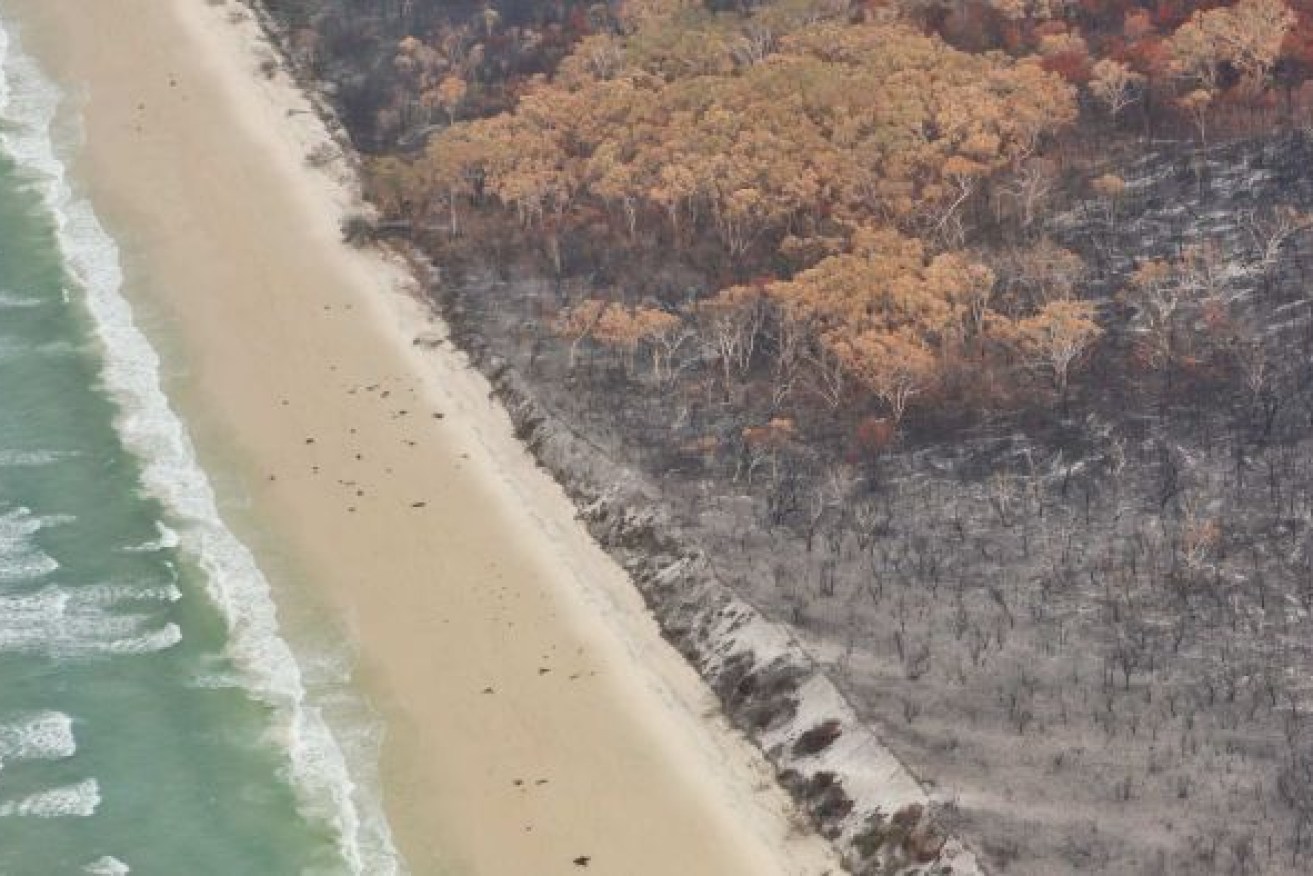Fan the flames: Too many stakeholders, not enough leadership added to Fraser Island fire woes
A lack of coordination on fire preparedness and response contributed to a bushfire destroying half of the World Heritage Area formerly known as Fraser Island.

The bushfire on N'gari caused widespread damage. Photo: ABC
The Inspector-General of Emergency Management, Alistair Dawson, reviewed the circumstances surrounding the 2020 bushfire on K’gari, and delivered a report to the Palaszczuk Government that was tabled in State Parliament today.
Behind the name change on the island is a seemingly complex operating environment, with multiple stakeholders, mostly National Park land, with some forestry land, and a lack of unified response on issues. Embracing the wild, a key tourist drawcard, made fire mitigation more difficult.
The report reveals the Queensland Fire and Emergency Services encouraged local involvement in planning, however the Locality Specific Fire Management Group for K’gari has not met for the last two years.
Similarly, the K’gari Fire Referral Group, run by the Queensland Parks and Wildlife Service, is scheduled to meet annually however the review could only find minutes for meetings in December 2017 and February 2019.
By the time the alarm was raised over an illegally-lit fire, authorities faced a relative tinderbox, widespread mobile phone and internet blackspots, and inaccessible terrain.
“IGEM acknowledges the commitment and fortitude of fire management and response agencies, rural fire brigades, the Butchulla people and community associations on the island in responding to this highly complex and challenging bushfire event that tested response agencies,” the report states.
“The first use of waterbombing aircraft was on 9 November, three weeks into the fire. QFES advised a total of 30 aircraft were later used for the event, dropping over 13.3 million litres of freshwater, saltwater and gel additives. The review found opportunities for QFES and QPWS to review their interagency protocols with the Butchulla people to enhance the timely deployment of resources in future events.”
The report has recommended better coordination and planning, as well as utilising technology such as drones and, to manage visitors, number plate recognition and mobile phone check-in apps.
Fire and Emergency Services Minister Mark Ryan said the recommendations had either been accepted or accepted in-principle.
“The 38 recommendations made in this report will help drive improvements for bushfire prevention, preparedness, response and recovery in the future and I know QFES is already making this work a priority,” Ryan said.
“The findings of the report show that, while there are things we can improve on, the foundation is already there – our emergency services and their partner agencies are world class and I commend them for their dedication to service and their professionalism.”












